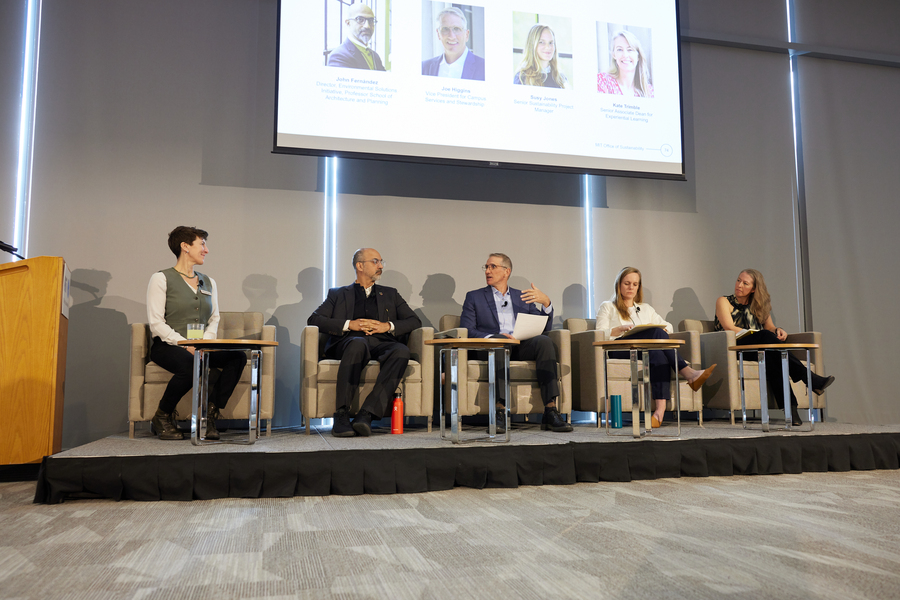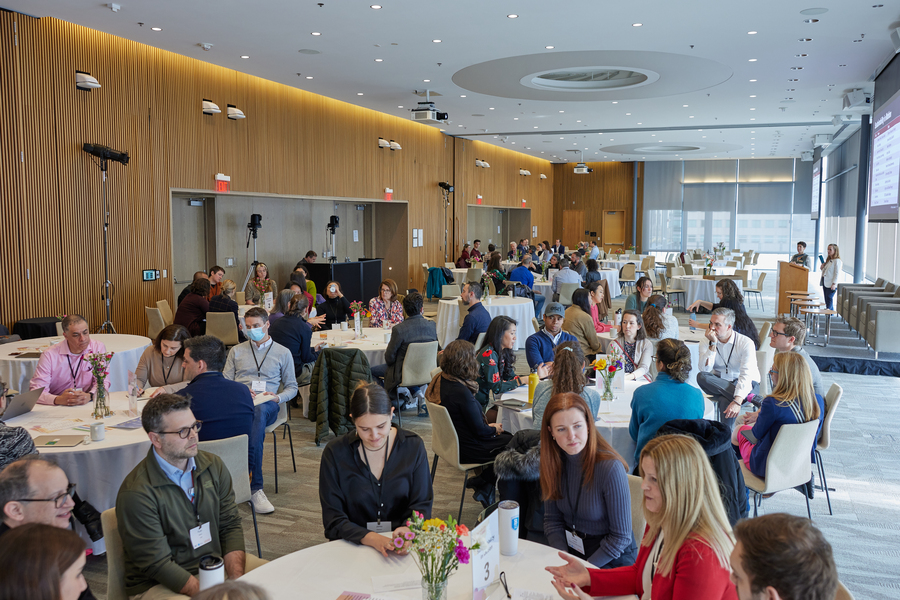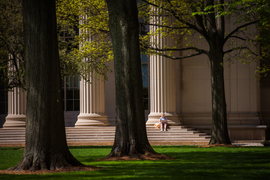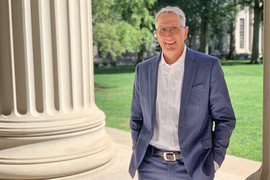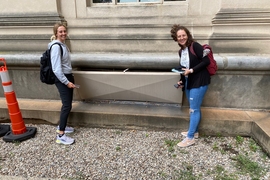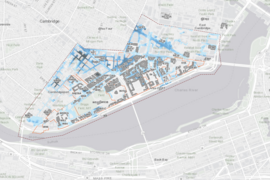When MIT’s Office of Sustainability (MITOS) first launched in 2013, it was charged with integrating sustainability across all levels of campus by engaging the collective brainpower of students, staff, faculty, alumni, and partners. At the eighth annual Sustainability Connect, MITOS’s signature event, held nearly a decade later, the room was filled with MIT community members representing 67 different departments, labs, and centers — demonstrating the breadth of engagement across MIT.
Held on Feb. 14 and hosting more than 100 staff, students, faculty, and researchers, the event was a forum on the future of sustainability leadership at MIT, designed to reflect on the work that had brought MIT to its present moment — focused on a net-zero future by 2026 and elimination of direct campus emissions by 2050 — and to plan forward.
Director of Sustainability Julie Newman kicked off the day by reflecting on some of the questions that influenced the development of the MITOS framework, including: “How can MIT be a game-changing force for campus sustainability in the 21st century?” and “What are we solving for?” Newman shared that while these questions still drive the work of the office, considerations of the impact of this work have evolved. “We are becoming savvier at asking the follow-up question to these prompts,” she explained. “Are our solutions causing additional issues that we were remiss to ask, such as the impact on marginalized communities, unanticipated human health implications, and new forms of extraction?” Newman then encouraged attendees to think about these types of questions when envisioning and planning for the next decade of sustainability at MIT.
While the event focused broadly on connecting the sustainability community at MIT, the day’s sessions tracked closely to the climate action plans that guided the office, 2015’s A Plan for Action on Climate Change and the current Fast Forward: MIT’s Climate Action Plan for the Decade. Both plans call for using the campus as a test bed, and at “A Model for Change: Field Reports from Campus as a Test Bed,” panelists Miho Mazereeuw, associate professor of architecture and urbanism, director of the Urban Risk Lab, and MITOS Faculty Fellow; Ken Strzepek, MITOS Faculty Fellow and research scientist at the MIT Center for Global Change Science; and Ippolyti Dellatolas graduate student and MITOS Climate Action Sustainability researcher shared ways in which they utilize the MIT campus as a test bed to design, study, and implement solutions related to flood risk, campus porosity, emissions reductions, and climate policy — efforts that can also inform work beyond MIT. Dellatolas reflected on success in this space. “With a successful campus as a test bed project, there is either output: we achieved these greenhouse gas emissions reductions or we learned something valuable in the process, so even if it fails, we understand why it failed and we can lend that knowledge to the next project,” she explained.
Later in the morning, an “On the Horizon” panel focused on what key areas of focus, partnerships, and evolutions will propel the campus forward — anchored in the intersectional topics of decarbonization, climate justice, and experiential learning. To kick off the discussion, panelists John Fernández, director of the Environmental Solutions Initiative and professor of architecture; Joe Higgins, vice president for campus services and stewardship; Susy Jones, senior sustainability project manager; and Kate Trimble, senior associate dean for experiential learning shared which elements of their work have shifted in the last five years. Higgins commented on exciting progress being made in the space of renewables, electrification, smart thermostats, offshore wind, and other advances both at MIT and the municipal level. “You take this moment, and you think, these things weren't in the moment five years ago when we were here on this stage. It brings a sense of abundance and optimism,” he concluded.
Jones, for her part, shared how thinking about food and nutrition evolved over this period. “We've developed a lot of programming around nutrition. In the past few years, this new knowledge around the climate impact of our food system has joined the conversation,” she shared. “I think it's really important to add that to the many years and decades of work that have been going on around food justice and food access and bring that climate conversation into that piece and acknowledge that, yes, the food system is accountable for about a quarter of global greenhouse gases.”
Throughout the event, attendees were encouraged to share their questions and ideas for the future. In the closing workshop, “The Future of Sustainability at MIT,” attendees responded to questions such as, “What gives you hope?” and “What are we already doing well at MIT, what could we do more of?” The answers and ideas — which ranged from fusion to community co-design to a continued focus on justice — will inform MITOS's work going forward, says Newman. “This is an activity we did within our core team, and the answers were so impactful and candid that we thought to bring it to the larger community to learn even more,” she says.
That larger community was also recognized for their contributions with the first-ever Sustainability Awards, which honored nominated staff and students from departments across MIT for their contributions to building a more sustainable MIT. “This year we had a special opportunity to spotlight some of those individuals and teams leading transformative change at MIT,” explained Newman. “But everyone in the room and everyone working on sustainability at MIT in some way are our partners in this work. Our office could not do what we do without them.”
